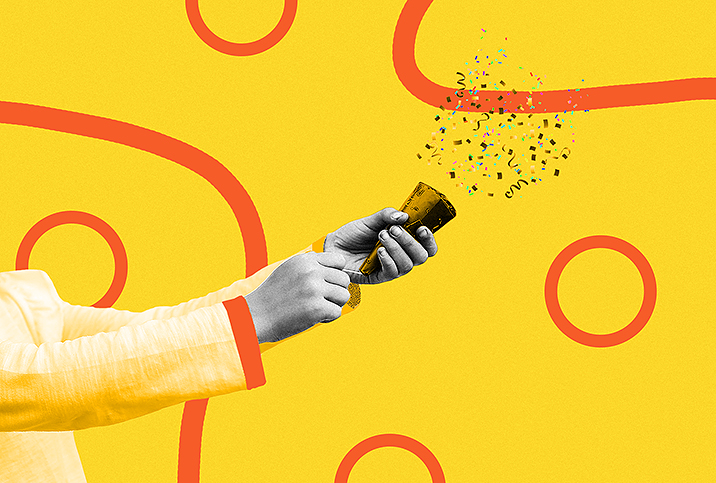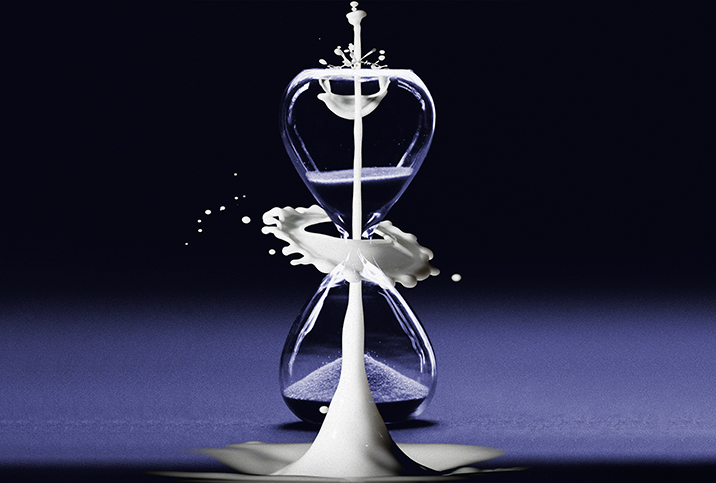Premature Ejaculation: Myths & Misconceptions

Premature ejaculation (PE) is one of the most common male sexual dysfunctions, affecting some 30 percent of men. It affects young men. Don't smile, older guys, because it affects you, too. No man is truly immune, whether it's a chronic circumstance or a one-time thing.
The topic of PE is rife with jokes and taste-free punchlines, which are hurtful to men's psyche. But PE also has myths attached to it that can lead to psychological or physical damage, so let's dispel them.
Myth: For sex to be good, a man must last at least 15 minutes.
Reality: Yeah, no. What you consider premature ejaculation may not actually be premature at all.
Pornographic movies have taught us that a guy should be able to pump away for what seems like 90 to 120 minutes. But according to surveys, "adequate" time for penetration is three to seven minutes, and "desirable" time is seven to 13 minutes.
On the far ends of the scale, penetration that lasts one to two minutes is believed to be "too short," while sex that lasts from 10 to 30 minutes is considered "too long."
According to the medical definition, premature ejaculation is:
- Always or nearly always ejaculating within one minute of penetration
- Being unable to delay ejaculation during intercourse all or nearly all of the time
- Feelings of being distressed and frustrated due to this, and a tendency to avoid sexual intimacy
Myth: PE occurs only in younger men.
Reality: Premature ejaculation can occur at any age, and actually may show an upsurge in men as they pass 50 years old.
While silly rom-coms and bawdy teen comedy films might have us think that PE is strictly the domain of younger men, research has shown there is a U-shaped curve to PE’s prevalence. Young men often do have trouble with self-control when they are first gaining sexual experience, but older men have similar tendencies, perhaps for different physiological or psychological reasons.
One Croatian study showed that the prevalence of PE ranged from 5.8 percent in the 35-38 age group to more than 30 percent in the 70-79 age group. The rates of PE were highest in the youngest group (15.7 percent) and the oldest group (12.5 percent).
Myth: Alcohol and drugs are good ways to slow down PE.
Reality: Other side effects tip the scale against this strategy, especially when it comes to substances that are illegal.
It's true that the use of drugs, such as alcohol, marijuana and cocaine (don't do it!), is sometimes cited as a way to desensitize the penis and extend the time it takes a man to reach orgasm. The downsides to those substances are just too many, though, including reduced libido, erectile dysfunction (ED) and lower testosterone levels.
Some men claim they've had success using topical lotions with numbing agents directly on the penis. Though it's possible the man's partner also could become numb, reducing the pleasure for both parties, doctors do offer these lotions as a treatment option. Another option is to wear a condom, or even two, to reduce sensation in the penis.
Myth: Ejaculation is a purely physiological process that can't be controlled.
Reality: While it's true that the body simply takes over once a man reaches the "point of no return," it's also true that you can learn to delay reaching that point, with some effort. Even men with extreme glans sensitivity can use certain ejaculation-control techniques:
- Edging is the practice of masturbating to the point of orgasm and then backing off to become more attuned to your body's signals as you build to orgasm.
- Masturbating a few hours before sex can help men extend their time to orgasm.
- The squeeze technique is when the man pulls out of his partner and squeezes the head of his penis when he feels he's getting close to ejaculation, then resumes action when the feeling passes.
- Changing your sexual position, such as having the woman on top, has been shown to counteract a man's PE.
- Having slow, relaxed sex with a patient partner is a common ejaculation-control technique.
Premature ejaculation is a common occurrence in bedrooms around the world, so it's no reason for shame or embarrassment. Of course, talk to your partner, and perhaps a therapist, about any feelings of anxiety you have about PE. The proactive approach, however, is to take the time to learn more about your body's responses to sexual stimuli, and learn to react to them promptly!


















